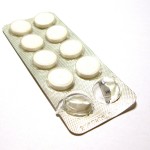What Does “Fat” Taste Like?
Saturday, March 27th, 2010People are aware that certain tastes evoke certain responses: sweet foods are more palatable than some bitter foods; some people crave salty foods while others prefer sweets. The five tastes that humans are able to differentiate are sweet, salt, bitter, sour and foods that are high in protein (also referred to as umami).
 Researchers have discovered that humans can differentiate a sixth flavor: namely, fat. Furthermore, people that are hypersensitive to the flavor of fat are less likely to eat foods with high fat content. Conversely, those people less able to differentiate the taste of fat were more likely to eat foods high in fat, and were also more prone to being overweight and to having a higher BMI (body mass index).
Researchers have discovered that humans can differentiate a sixth flavor: namely, fat. Furthermore, people that are hypersensitive to the flavor of fat are less likely to eat foods with high fat content. Conversely, those people less able to differentiate the taste of fat were more likely to eat foods high in fat, and were also more prone to being overweight and to having a higher BMI (body mass index).
This research is interesting because it holds the possibility of developing new ways to help people lose weight, by altering their sensitivity to the taste of fat. In addition, this research could lead to the development of new foods that are low in fat but are still palatable to those trying to lose weight. Manipulating this new knowledge in a way that targets taste perceptions may offer new avenues to weight loss.
Source: Discovery of ‘Fat’ Taste Could Hold the Key to Reducing Obesity




